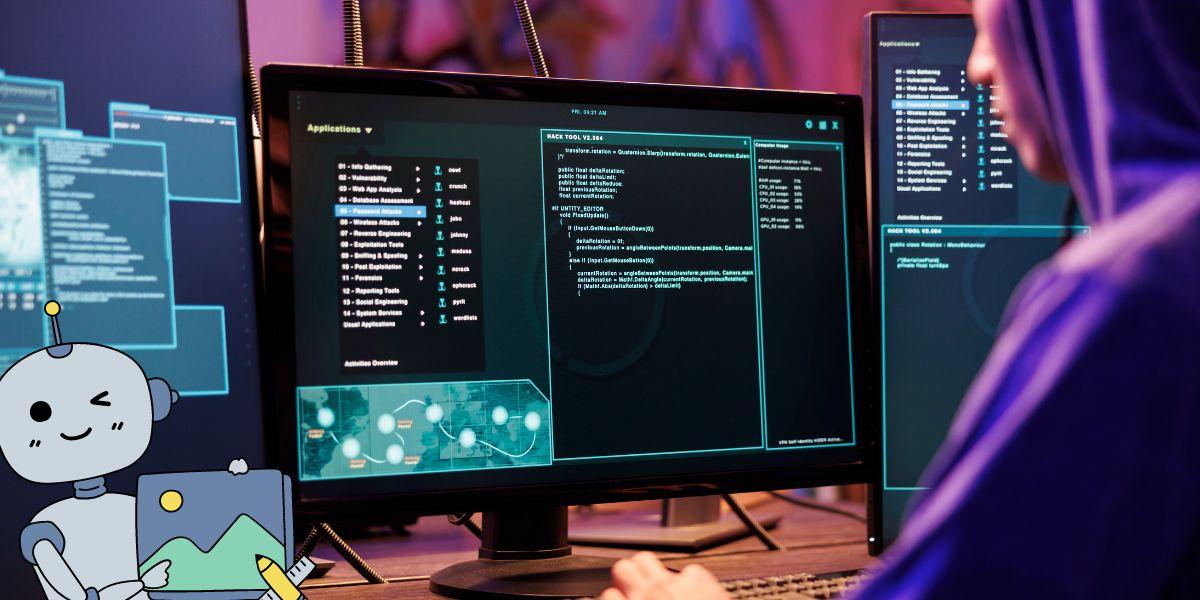AI Software in the Construction Industry, Artificial Intelligence (AI) is remodeling various sectors, and the development industry is no exception. AI software inside the creation industry streamlines operations, improves protection, and optimizes mission control like never before. This article explores the effect of AI in construction, its benefits, challenges, and destiny potentialities.
Key Takeaways
AI software in construction provides several key benefits:
- Increased Efficiency: AI optimizes project planning, scheduling, and resource allocation, reducing delays and cost overruns.
- Improved Safety: AI-powered systems enhance on-site safety through predictive analytics and real-time monitoring.
- Enhanced Decision Making: AI algorithms analyze vast amounts of data to provide actionable insights for better decision-making.
- Quality Control: AI enables automated quality checks, ensuring adherence to design specifications and standards.
Understanding AI Software in Construction
AI software program within the construction enterprise refers to synthetic intelligence programs designed to enhance efficiency, accuracy, and safety in various production tasks. These degrees include making plans, layout, execution, and upkeep. The integration of AI technology such as gadget studying, laptop imaginative and prescient, and predictive analytics has revolutionized traditional production practices.
Applications of AI in Construction
- Design and Planning: AI software assists architects and engineers in designing structures through reading records and generating optimized designs based on parameters along with substances, fees, and sustainability.
- Project Management: AI enhances challenge management by way of predicting challenge timelines, figuring out risks, and optimizing aid allocation to make certain well-timed the entirety of initiatives.
- Safety Monitoring: AI-powered sensors and drones screen production sites in real-time, detecting capability dangers and making sure compliance with protection protocols.
- Quality Control: AI algorithms look into production substances for nice and stumble on defects more accurately than human inspectors, thereby minimizing transformation and ensuring better pleasant requirements.
- Robotics and Automation: AI-driven robotics automate repetitive obligations like bricklaying and welding, rushing up creation tactics and decreasing labor expenses.
Benefits of AI Software in Construction

Benefits of AI Software in Construction
The AI software program offers numerous blessings that significantly improve performance and productiveness within the production industry:
- Increased Efficiency: AI automates habitual obligations and optimizes workflows, lowering venture timelines and prices.
- Enhanced Safety: Real-time tracking and predictive analytics minimize accidents and enhance typical site protection.
- Cost Savings: AI helps in higher aid control, reducing wastage, and optimizing procurement, leading to price financial savings.
- Improved Accuracy: AI algorithms provide specific insights and predictions, enhancing decision-making and lowering errors in layout and construction.
Challenges and Considerations
Despite its benefits, the adoption of AI software programs in production faces certain challenges:
- Cost of Implementation: Initial setup charges and integration of AI systems may be steeply-priced for smaller companies.
- Data Privacy and Security: Handling touchy assignment data requires robust cybersecurity measures to save you from breaches and unauthorized entry.
- Workforce Adaptation: Training production employees to apply AI tools effectively and addressing issues about activity displacement are crucial.
Future Trends and Outlook
The future of AI in the production enterprise seems promising with ongoing improvements:
- AI-Driven Smart Cities: AI will play a vital function in growing clever towns with wise infrastructure and sustainable buildings.
- Predictive Maintenance: AI-enabled predictive protection will reduce downtime and enlarge the lifespan of structures and gadgets.
- Collaborative Robotics: Human-robotic collaboration will become greater than usual, improving productiveness and protection on creation sites.
- AI and Sustainability: AI algorithms will optimize power consumption and cloth utilization, promoting eco-friendly construction practices.
Table: Comparison of AI Applications in Construction
| Application of AI | Description | Benefits | Challenges |
|---|---|---|---|
| Project Planning | AI optimizes project timelines and resource allocation. | Improved efficiency | High initial costs, complexity |
| Safety Monitoring | AI monitors construction sites for potential hazards. | Enhanced safety | Privacy concerns, accuracy |
| Predictive Maintenance | AI predicts equipment failures to schedule maintenance. | Reduced downtime | Integration with existing systems |
| Quality Control | AI automates quality checks to ensure compliance. | Improved product quality | Data accuracy, training requirements |
FAQs
What are some popular AI software program gear utilized in production?
Popular AI software tools encompass Autodesk’s BIM 360 for assignment management, Smartvid.Io for protection monitoring, and Plangrid for actual-time collaboration.
How does AI improve safety in construction?
AI enhances safety by monitoring construction sites in real-time, identifying hazards, and alerting workers to potential hazards before accidents occur.
Can AI software programs help reduce production costs?
Yes, the AI software program optimizes useful resource allocation, reduces fabric wastage, and improves performance, thereby reducing universal construction expenses.
What role does AI play in sustainable production practices?
AI analyzes facts to optimize strength utilization, promote the recycling of materials, and lay out green homes, helping sustainable production practices.
What are the demanding situations of adopting AI in construction?
Challenges include excessive preliminary prices, information safety issues, and the want for staff schooling to correctly use AI tools on construction sites.
Conclusion
AI software is reshaping the development industry by improving performance, safety, and sustainability. As the era continues to conform, AI will play an increasingly more fundamental position in reworking how homes are designed, constructed, and maintained. Embracing AI in creation guarantees no longer the handiest greater productiveness and fee-effectiveness but also more secure and extra sustainable city environments for future generations.
In conclusion, the integration of AI software programs within the construction industry isn’t only a fashion but a necessity for corporations looking to live competitively in a hastily evolving marketplace. By leveraging AI technology intelligently, production corporations can achieve greater operational efficiencies and supply tasks that meet the needs of current urban development.
This article has explored the diverse elements of AI software in creation, from its programs and advantages to challenges and destiny tendencies. Whether you are an industry professional or a curious observer, knowledge of AI’s effect on creation is important for navigating the destiny of building and infrastructure development.
